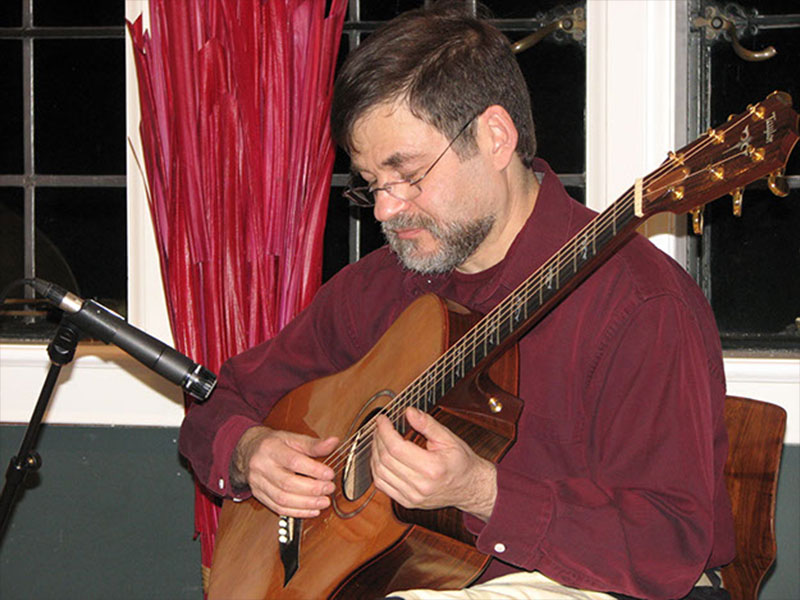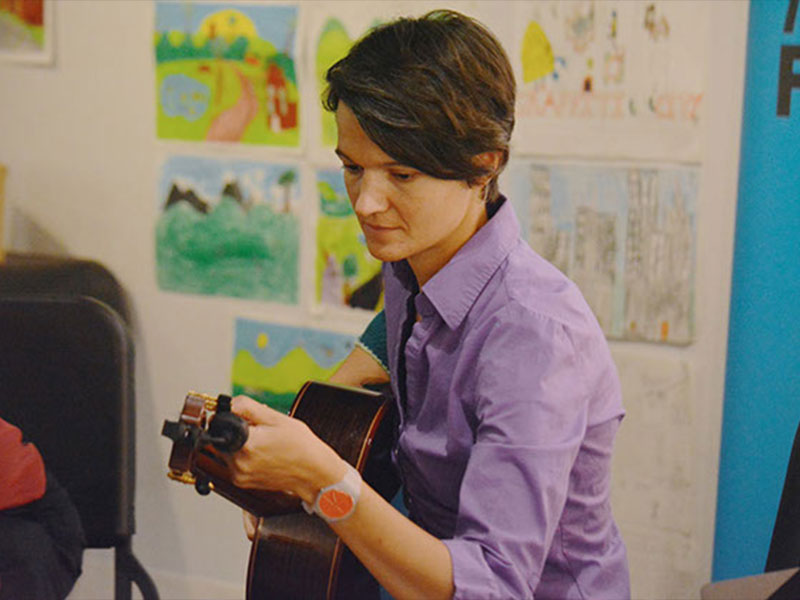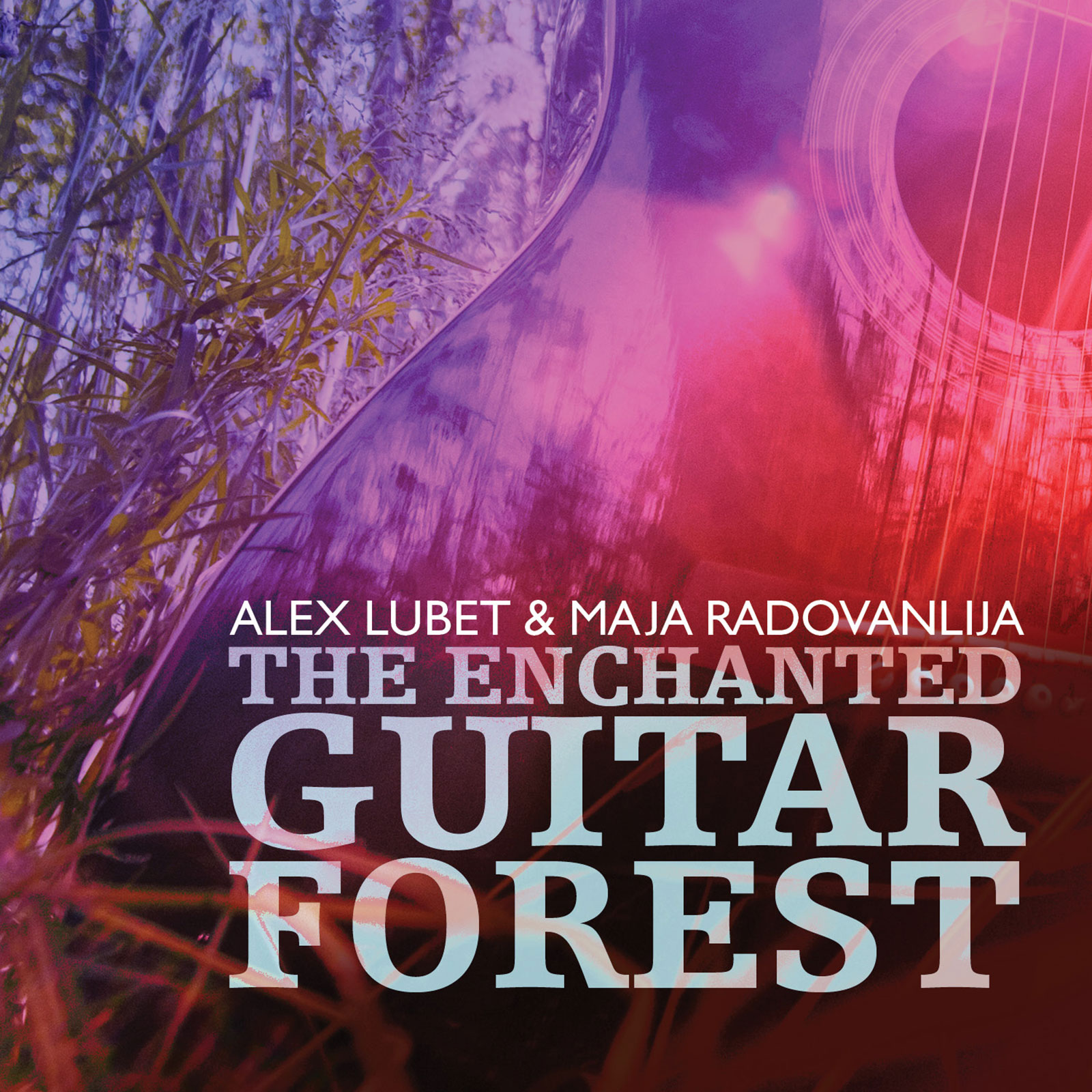
Share Album:
The Enchanted Guitar Forest
Alex Lubet composer, guitarist
Maja Radovanlija composer, guitarist
Transporting the listener to a mysterious and enthralling sonic world, composers and guitarists Alex Lubet and Maja Radovanlija present their debut release on Big Round Records, THE ENCHANTED GUITAR FOREST, which captures the duo’s Eastern European, specifically Jewish and Balkan, heritage.
Influenced by the composition and playing styles of blues and jazz as well as world and classical music, Lubet and Radovanlija deliver their signature approach of using traditional melodies combined with improvisation, producing a sound driven lyrically and rhythmically, out of which flows interwoven harmonic structures. Many of the solo and duo works featured on the album use thematic material of traditional songs from Jewish and Eastern European folk music, including Macedonian Dream, inspired by a Macedonian tune which uses a traditional Balkan meter of 7/8 (3+2+2); and Los Bilbilicos (“The Nightingales”), a set of variations which Radovanlija composed after an old Sephardic song about longing for lost love. Lubet’s Ein Keiloheinu uses the opening passage from Julius Freudenthal’s well-known synagogue hymn, transforming it through sections of improvisation and re-harmonization. Other pieces take inspiration and material from classical music such as Lubet’s Aria, based on Puccini’s famous “O mio babbino caro” from his opera Gianni Schicchi.
Listen
Track Listing & Credits
| # | Title | Composer | Performer | |
|---|---|---|---|---|
| 01 | Macedonian Dream | Maja Radovanlija | Alex Lubet, acoustic guitar; Maja Radovanlija, classical guitar | 6:55 |
| 02 | Los Bibilicos (Arr. M. Radovanlija for Guitar) | Maja Radovanlija | Maja Radovanlija, classical guitar | 6:13 |
| 03 | Aria (After Puccini) | Alex Lubet | Alex Lubet, acoustic guitar | 4:40 |
| 04 | Ein Keiloheinu (After Freudenthal) | Alex Lubet | Alex Lubet, National Reso-Phonic Guitar; Maja Radovanlija, classical guitar | 6:02 |
| 05 | Semi-Improvised Nostalgic Study | Maja Radovanlija | Maja Radovanlija, classical guitar | 4:29 |
| 06 | Slow Blues | Alex Lubet | Alex Lubet, acoustic guitar | 3:35 |
| 07 | Eliyahu Hanavi (Arr. A. Lubet & M. Radovanlija for 2 Guitars) | Alex Lubet | Alex Lubet, soprano ukulele; Maja Radovanlija, prepared classical guitar | 5:24 |
| 08 | Ma Yafeh Hayom (Arr. A. Lubet & M. Radovanlija for 2 Guitars) | Isachaar Miron, arr. Alex Lubet | Alex Lubet, acoustic guitar; Maja Radovanlija, classical guitar | 3:51 |
Recorded January 9-12, Lloyd Ultan Recital Hall,
School of Music, University of Minnesota MN
Session Producer Steve Barnett
Session Engineer Preston Smith
Photography Michal Daniel & Ivana Pantelic
Executive Producer Bob Lord
Audio Director Jeff LeRoy
Production Engineer Nate Hunter
Art & Production Director Brett Picknell
Graphic Designer Ryan Harrison
A&R Brandon MacNeil
Marketing Manager Ethan Fortin
Artist Information
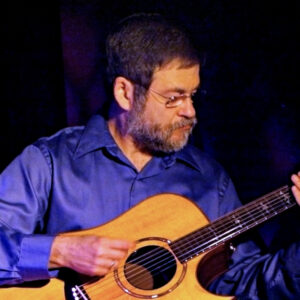
Alex Lubet
A native of Chicago, composer, multi-instrumentalist, author, and educator Alex Lubet has lived in Minnesota since 1979. While having written works in many idioms, he has long devoted himself principally to performing his own music, as a solo acoustic guitarist and in collaboration with artists including Maja Radovanlija, Swiss free jazz pianist Guerino Mazzola, and his wife, taiko and fue (Japanese drums and horizontal flute) player Iris Shiraishi.
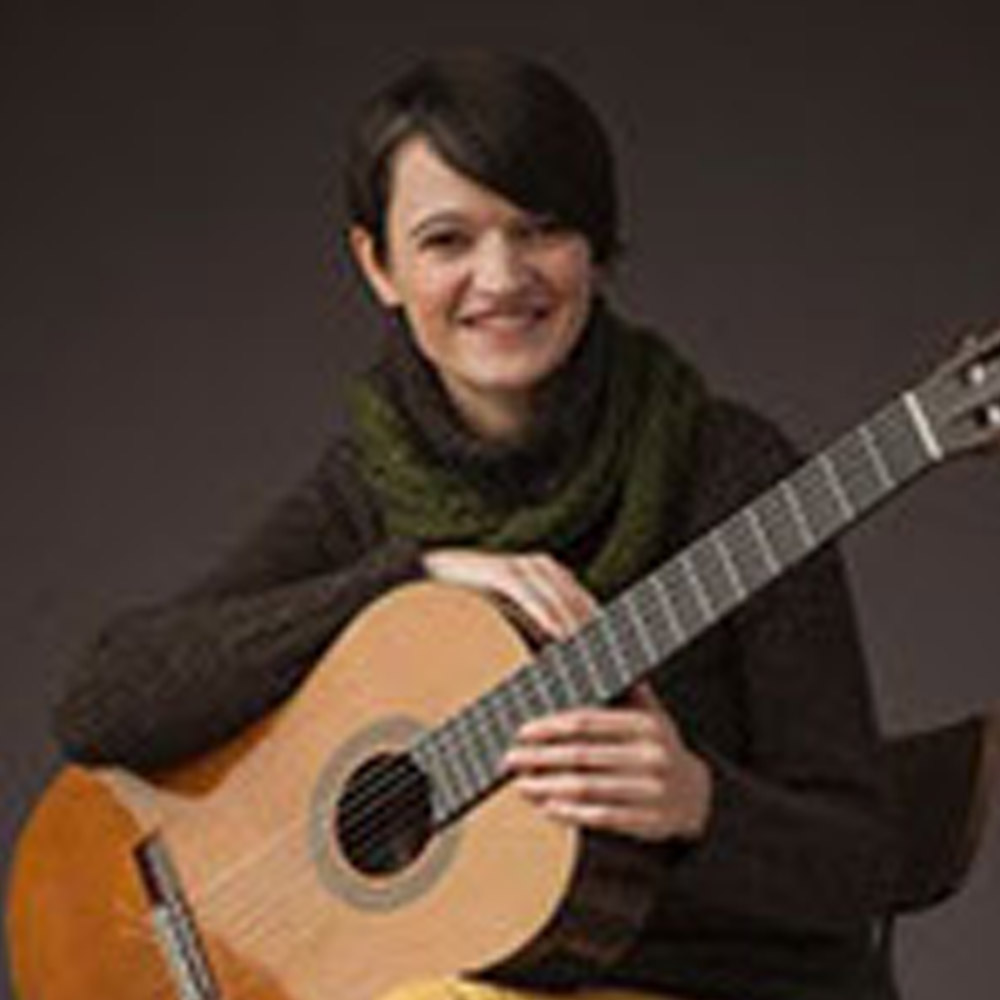
Maja Radovanlija
A native of Belgrade, Serbia, Maja Radovanlija received her initial training at the University of Belgrade, with graduate studies at Indiana University. She was won several awards and competitions, including second prize at the Petar Konjevic International Competition in Belgrade. A student of early music, Latin American music, and jazz, Maja began composing and performing her own works in graduate school. She is distinguished by her passion for improvisation, rare among classical guitarists. Having performed widely in Europe, North Africa, the Middle East, and throughout the US, Maja is a member of the Minneapolis Guitar Quartet and often performs in the US with (among many) ImprovIsAn’Do and Improvised Ecosystems; in Belgrade with the ImprovE Collective, and with Hungarian violist/composer Szilard Mezei. Maja has taught guitar at the University of Minnesota since 2011.
Maja plays a double top guitar, made in West Branch, Iowa by luthier John H. Dick.
Notes
Our duo of very different yet kindred artists – Alex, a classically trained composer and (largely) self-taught acoustic guitarist, Maja a classically trained guitarist and self-taught composer — began in 2011. Our musical signature is a blend of composition and improvisation, in works that celebrate the unique glories of our instrument and our Eastern European – Jewish and Balkan – heritage. We have many other influences as well: blues, jazz, rock, world and contemporary Western art musics, and even Italian opera. Our sound is driven by melody and rhythm; harmony emerges from their flow.
– Alex Lubet

